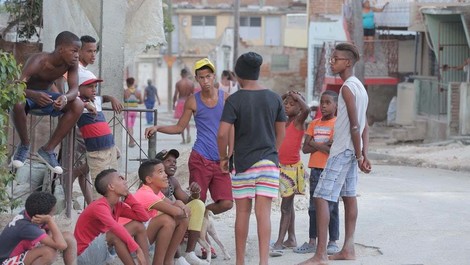Your podcast discovery platform
Curious minds select the most fascinating podcasts from around the world. Discover hand-piqd audio recommendations on your favorite topics.

piqer for: Global finds
Ciku Kimeria is a Kenyan author "Of goats and poisoned oranges" - (https://www.amazon.com/goats-poisoned-oranges-Ciku-Kimeria-ebook/dp/B00HBBWPI6), development consultant, adventurer and travel blogger (www.thekenyanexplorer.com). She writes both fiction and non-fiction focusing on African stories that need telling. She has worked on diverse pieces for various international and local publications including Quartz, Ozy, The East African etc. She has travelled to 45 countries – 16 of them in Africa. 153 countries to go and 63 territories!
"Of goats and poisoned oranges" has been extremely well received in Kenya and beyond. It tells the story of a Kenyan middle aged power couple and their complicated marriage. The novel explores issues of greed, revenge, betrayal and murder. It runs from the 1960s to 2013. It has been described as “Wicked, funny, poignant, wacky, human, a big ball of fun and danger”, “A unique and captivating book”, “Fun and intriguing”, “Impossible to put down once you start reading.”
She recently moved to Dakar, Senegal from Kenya to work on her second novel. She also works at as the Africa Communication Manager at a leading global strategy consulting firm.
She holds a B.S. in Management Science from MIT with minors in Urban Planning and International development studies.
African Med Students Create New Musical Genres In Cuba
Most times when we read about Africa's influence on culture in the Americas, Caribbean etc., it's mostly tied to the trans-Atlantic slave trade and assumed as something that happened only in that particular time. We often overlook the cultural influences that take place in the recent past when Africans go to study, work or live in some of these other countries.
Medical students from countries such as Angola, Ghana, and Nigeria — who have, for decades now, come to Cuba as part of higher education exchange programs — brought with them kuduro and afropop music. And in Santiago de Cuba, those students’ interactions with local musicians such as Ozkaro and Maikel el Padrino prompted bakosó, a Spanish-language take on afropop. The music — screeching synths, clattering rhythms, Auto-Tuned party melodies — is as enthralling as its origin story.
Bakoso is a recent musical genre with diasporic origins and is likely not going to be the last of its kind. Afrobeats is another recent genre that seems to be leading to several cross-continental collaborations, e.g. Drake and Wizkid's One Dance.
What's most fascinating about Bakoso's origin is that it has fully depended on one-on-one interactions. In a country where internet access has been highly restricted for most, the cultural exchange had to happen in person.
In bakosó, rather than technology, it’s the direct influence of the African students.
What the article captures really well is the fact that cultural exchanges are two-way. In one instance, an Angolan musician gets really famous in Angola with a bakosó song, thus taking an African-inspired Cuban musical genre back to his home country.
I believe that the forthcoming documentary will be a must-watch.
